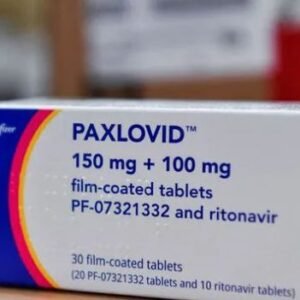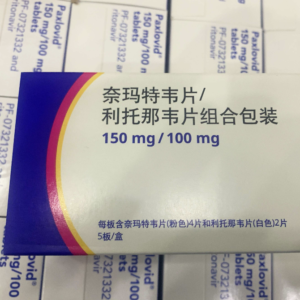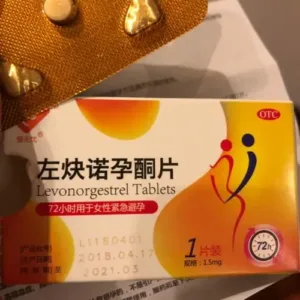Nirmatrelvir Tablets/Ritonavir Tablets(co-packaged)Paxlovid
Efficacy:
For the treatment of mild to moderate novel coronavirus infection (COVID-19) in adults with high risk factors for progression to severe illness. Patients with at least one of the following diseases or conditions are considered to have high risk factors for progression to severe COVID-19: advanced age (e.g., ≥ 60 years old); obesity or overweight (e.g., body mass index [BMI]> 25 kg/m2); current smoker; chronic kidney disease; diabetes; immunosuppressive disease or immunosuppressive therapy; cardiovascular disease (including congenital heart disease) or hypertension; chronic lung disease (e.g., chronic obstructive pulmonary disease, asthma [moderate to severe], interstitial lung disease, cystic fibrosis, and pulmonary hypertension); sickle cell disease; neurodevelopmental diseases (e.g., cerebral palsy, Down syndrome) or other conditions that lead to medical complexity (e.g., genetic or metabolic syndrome and severe congenital anomalies); active cancer; need for relevant medical support (not related to COVID-19) (e.g., tracheotomy, gastrostomy, or positive pressure ventilation, etc.).
Dosage and Administration: The recommended dose is namatevir 300 mg (150 mg × 2 tablets) combined with ritonavir 100 mg (100 mg × 1 tablet), taken orally once every 12 hours for 5 consecutive days. Take this product as soon as possible after COVID-19 diagnosis and within 5 days of symptom onset. If the patient requires hospitalization for severe or critical COVID-19 after starting treatment with this product, it is also recommended to complete 5 days of treatment. Patients with Renal Impairment No dose adjustment is required for patients with mild renal impairment (eGFR ≥ 60 to < 90 mL/min). In patients with moderate renal impairment (eGFR ≥ 30 to < 60 mL/min), the dose of this product should be reduced to namatevir/ritonavir 150 mg/100 mg once every 12 hours for 5 days to avoid overexposure. Patients with severe renal impairment (eGFR < 30 mL/min) should not use this product, including patients with end-stage renal disease (ESRD) under hemodialysis. Patients with liver damage do not need to adjust the dose of this product for patients with mild (Child-Pugh A grade) or moderate (Child-Pugh B grade) liver damage. Patients with severe liver damage should not use this product.
Adverse reactions:
Gastrointestinal diseases such as diarrhea, indigestion, gastroesophageal reflux disease, vomiting, as well as adverse reactions such as myalgia, taste perversion, and dizziness may occur after taking the medicine. In addition, rare adverse reactions include aphthous ulcers, colitis, dry mouth, soft stools, chest discomfort, loss of appetite, headache, parosmia, anxiety, dyspnea, hiccups, oropharyngeal pain, maculopapular rash, skin peeling, etc. Abnormal examination indicators: increased alanine aminotransferase (ALT), increased aspartate aminotransferase (AST), and decreased blood thyroid stimulating hormone (TSH). Therefore, please inform the doctor that you are using this product when you see a doctor to avoid affecting the diagnosis and treatment of the disease.
Drug contraindications:
Do not use this product if you are allergic to it
Share:
Products
Our offers
Health Classification
Let us work together to protect precious health






























